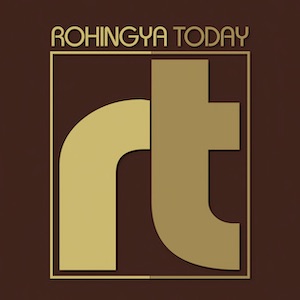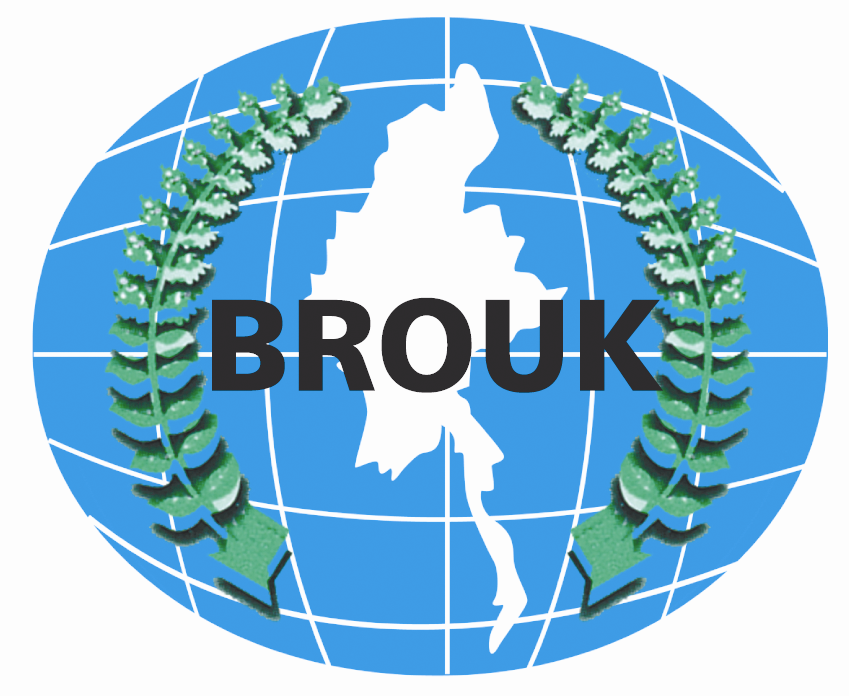
Media Release From Burmese Rohingya Organisation UK
For Immediate Release
Wednesday 26th June 2024
New Report: The Intensifying Rohingya Genocide
For four and a half years, the United Nations Security Council, with the UK as penholder on Myanmar, has failed to uphold provisional measures ordered by the International Court of Justice on Myanmar to prevent acts of genocide against the Rohingya.
As a result of this failure, in the past six months alone, hundreds if not several thousands more Rohingya have been killed. A new report from the Burmese Rohingya Organisation UK sets out how Rohingya have been targeted as part of the Myanmar military’s intensifying genocidal campaign, against the backdrop of a brutal and increasingly complex war in Rakhine State between the Myanmar military and its proxies, and the Arakan Army.
The Myanmar military has forcibly recruited Rohingya men and youth - including minors - by abducting them from their homes, villages, markets, some during night raids and often at gunpoint. Once conscripted, Rohingya have been subjected to forced labour and cruel, inhuman, or degrading treatment, then sent to the frontlines in Rakhine State to be used as cannon fodder. The regime’s treatment of forcibly recruited Rohingya may constitute the genocidal act of causing serious bodily or mental harm to the members of the group, says the new report.
All 600,000 Rohingya left in Rakhine State continue to live under wide-ranging repressive laws and policies. This includes 140,000 Rohingya who have been confined to camps since 2012 and are living under a state of indefinite arbitrary detention. According to the report’s analysis, the Myanmar military is perpetrating the genocidal act known as ‘slow death’, which involves deliberately inflicting conditions of life calculated to bring about the physical destruction in whole or in part of the Rohingya group. This includes the deliberate deprivation of resources indispensable for survival – namely adequate food, water, shelter, sanitation and medical care – by the military regime. The severe restrictions on freedom of movement imposed on the Rohingya underpin this act. They also leave Rohingya extremely vulnerable during times of armed conflict.
During the period covered by this report, 13 November 2023 – 23 May 2024, the Myanmar military, its proxies, and the Arakan Army are also alleged to have committed war crimes against Rohingya communities, including murder, torture, cruel treatment, extrajudicial executions, sexual violence, rape, taking hostages, conscripting and using children, pillaging, and deliberately attacking civilians.
“Rohingya remaining in Rakhine State face either a fast death being killed by the Myanmar military or Arakan Army, or a slow death as a result of being systematically deprived of the basic necessities of life,” said Tun Khin, President of the Burmese Rohingya Organisation UK. “We are witnessing another significant increase in violence against the Rohingya and once again the UN Security Council looks on and does nothing.”
This new report provides detailed research and new information on the situation on the ground in Rakhine State, including a timeline of events. It also sounds the alarm about the abrupt escalation of the human rights and humanitarian crisis.
200,000 Rohingya internally displaced in northern Rakhine State are now in dire need of international humanitarian aid to prevent further loss of life. In addition, 110,000 Rohingya – half of them children – are currently trapped in Sittwe township, surrounded by landmines and unable to flee as the conflict edges closer to the city.
The report warns that the international community cannot afford to fail the Rohingya yet again. There must be concerted international public pressure for an open meeting of the UN Security Council to frankly discuss the regime’s repeated breaches of the ICJ’s provisional measures order over the past four-and-a-half years. All relevant organs of the United Nations must make consistent efforts to leverage the ICJ’s provisional measures order within their own mandates, to seek urgent protection for the Rohingya and end the cycle of impunity in Myanmar, including support for the referral of the situation in Myanmar to the International Criminal Court or the creation of an ad hoc international tribunal.
“For the past 12 years, by repeatedly failing to take action to prevent violations of international law against the Rohingya, the UN Security Council has been sending a message to authoritarian regimes worldwide that they can get away with attempting to wipe out minorities they don’t like,” said Tun Khin. “The Rohingya genocide was not inevitable, it was allowed to happen and is still being allowed to happen.”
Background
The International Court of Justice issued its provisional measures order on Myanmar to ‘take all measures within its power’ to protect the Rohingya as part of the ongoing genocide case brought by The Gambia against Myanmar in January 2020. The United Kingdom, Canada, Denmark, France, Germany, the Netherlands, and the Maldives have filed declarations of intervention in support of The Gambia in the case. The case has moved to a second round of written pleadings as part of the merits phase of the case. Oral hearings are unlikely to take place until 2025 at the earliest, after which the Court will issue its judgment following a period of deliberation.
This latest report from the Burmese Rohingya Organisation UK is the ninth in its series detailing both the continual breaches of the order over the past four and a half years, and the ongoing genocide against the Rohingya who remain in Rakhine State.








